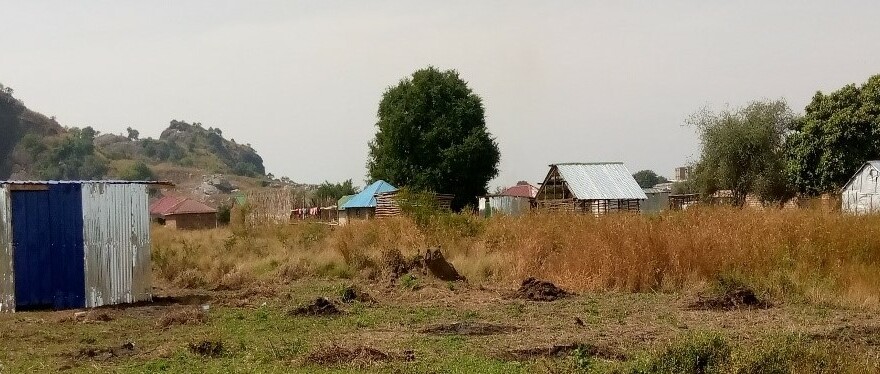Following the signing of the Comprehensive Peace Agreement in Kenya in 2005, Juba emerged as the capital city of the autonomous government of Southern Sudan. This status persisted even after South Sudan gained independence through a referendum on July 9, 2011, solidifying Juba’s position as the temporary capital of the newly formed Republic of South Sudan. While Ramciel, an imaginary town on the borders of Lakes and Unity States, was initially designated as the administrative capital post-independence, the government has since prioritized tribalism and resource mismanagement over its development.
The issue of land grabbing in Juba dates back to 2006 when peacekeeping soldiers arrived with their families, initially on a small scale. Personally, I arrived in Juba in November 2006 from Uganda, where I was studying at the time.
Land grabbing activities were beginning to surface in areas such as Tongpiny (Juba Na-bari), Nyakuron, and Jebel, albeit at a modest scale. At that time, former Sudan People’s Liberation Army rebels, now members of the Joint Integrated Units (JIU) as per the Comprehensive Peace Agreement (CPA), were among those settling their families in Juba.
Initially, the Bari community viewed this movement positively, seeing it as non-threatening. There were no self-proclaimed leaders of land grabbers, as witnessed today in 2024. However, despite the absence of overt conflict, land grabbing persisted, albeit on a limited scale.
The three significant mistakes made by the government of Central Equatoria State, Bari elders, and intellectuals have had profound repercussions. Firstly, there was the refusal to allow Dinka individuals to rent houses in Juba, based on fears they would forcibly claim ownership.
Secondly, the government’s failure to allocate land to South Sudanese who sought refuge in Juba, despite their genuine intentions. Lastly, the encouragement of aerial demarcations of land through issuing land titles without proper delineation, primarily by the Ministry of Housing and Urban Development of Central Equatoria.
With the rapid population increase and a shortage of housing in the city, numerous self-proclaimed land grabbing chiefs have emerged. They have established strong networks with military figures stationed in the vicinity of Juba to facilitate the distribution of land to both South Sudanese citizens and foreigners, often for as little as five United States Dollars for a 20 x 20 meter plot.
Some of these land grabbers exploit members of the Bari community to understand their tactics and vulnerabilities. For instance, Commissioner Charles Joseph Wani of Juba County was dismissed after attempting to demolish structures erected by land grabbers in Ladu Payam. Similarly, former Mayor Moulana Kalisto Lado was detained for speaking out against land grabbing. These incidents underscore the powerlessness of both the state government and Bari intellectuals in the face of land grabbers.
In a letter dated April 3rd, 2024, the Bari community expressed concerns about the “New Koryom Battalion,” a Dinka Bor-led movement allegedly involved in aggressive land grabbing from Rajaf to Mangalla along the Eastern Bank of the Nile.
Sadly, the land grabbers in Juba now wield more influence than the entire government of Central Equatoria State and the Bari community combined.
While land grabbing poses significant disadvantages to the Bari community, it is not an uncommon issue in newly independent nations. Similar challenges were faced during the independence of Kenya, Uganda, Tanzania, and India, where land ownership became concentrated among the elite who came to power in the post-independence era.
As a concerned citizen of South Sudan, actively engaged in journalism, I feel compelled to voice my opinion on the pressing issue of land grabbing in Juba. It is my sincere belief that the Bari community should consider allowing members of their community to participate in the land-grabbing activities to secure plots for their families before it is too late.
The individuals currently involved in land grabbing are not just acquiring land for themselves; they are positioning themselves for future political influence. They will likely enter politics and enact laws that safeguard the land they have seized.
An alarming example of this manipulation is evident in certain clauses of the 2023 land policy document, which ambiguously states that “the land belongs to the people of South Sudan,” while the Southern Sudan Land Act specifies that “the land belongs to communities and is regulated by the government.”
Furthermore, the land grabbers are constructing skyscrapers and tall buildings, necessitating future plans for demolition or relocation. The Bari community must carefully consider whether to heed or disregard my opinion on this matter.
In conclusion, it is imperative for the Bari community to confront the issue of land grabbing in Juba with pragmatism and foresight. Failure to act decisively now may result in irreparable loss of land and influence in the future.
Ruot George W. Mut is a freelance journalist with over ten years of experience in digital media, broadcast journalism and a social media influencer. He is a Human Rights Activist based in South Sudan. He can be reached at mutgeorge8@gmail.com
The views expressed in ‘opinion’ articles published by Radio Tamazuj are solely those of the writer. The veracity of any claims made is the responsibility of the author, not Radio Tamazuj.




